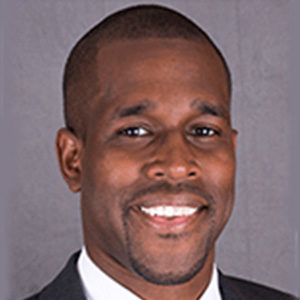Losing a loved one is a deeply painful experience, and when that loss is the result of someone else’s negligence or misconduct, the pain is often accompanied by anger and confusion. In such tragic circumstances, understanding the various types of wrongful death accidents and their causes can provide some clarity, though nothing can truly replace the life that was taken. Wrongful death claims arise when a person dies due to the legal fault of another individual or entity, such as in cases involving negligence, gross negligence, or intentional harm. This discussion delves into the common types of wrongful death accidents, examining the underlying causes that lead to such devastating outcomes.
Motor Vehicle Accidents
Motor vehicle accidents are one of the most prevalent causes of wrongful death in the United States. The sheer number of cars, trucks, motorcycles, and other vehicles on the roads increases the likelihood of collisions that can result in fatalities. There are various factors that contribute to these accidents, many of which involve negligence on the part of the drivers, manufacturers, or even government entities responsible for maintaining roadways.
One significant cause of wrongful death in motor vehicle accidents is distracted driving. With the advent of smartphones and other mobile devices, drivers are increasingly tempted to divert their attention away from the road. Texting, talking on the phone, or even using GPS devices can lead to disastrous outcomes in mere seconds. When a driver is not fully focused on driving, the likelihood of making critical errors that result in fatal accidents increases dramatically.
Another cause of wrongful death in motor vehicle accidents is impaired driving. Alcohol, drugs, and even prescription medications can severely impair a driver’s ability to operate a vehicle safely. Drunk driving continues to be a major issue, despite widespread public awareness campaigns and stringent legal penalties. When a driver’s judgment, coordination, and reaction time are compromised, the risk of causing a fatal accident rises significantly.
Speeding is another common cause of fatal motor vehicle accidents. Drivers who exceed the speed limit or drive too fast for road conditions often have less time to react to sudden changes, such as a pedestrian crossing the street or another vehicle making an unexpected stop. The impact of a high-speed collision can be catastrophic, often leading to fatalities that could have been avoided if the driver had been obeying the speed limits.
Additionally, defective vehicle parts or improper vehicle maintenance can lead to fatal accidents. Tire blowouts, brake failures, or other mechanical issues can cause drivers to lose control of their vehicles, resulting in deadly crashes. In such cases, the manufacturer of the defective part or the party responsible for maintaining the vehicle may be held liable for the wrongful death.
Medical Malpractice
Medical malpractice is another significant cause of wrongful death, occurring when a healthcare professional’s negligence or failure to provide appropriate care results in the death of a patient. The relationship between patients and healthcare providers is built on trust, with the expectation that medical professionals will adhere to the highest standards of care. However, when mistakes are made, the consequences can be fatal.
One of the most common forms of medical malpractice leading to wrongful death is misdiagnosis or delayed diagnosis. When a healthcare provider fails to diagnose a serious condition in a timely manner, the patient may not receive the necessary treatment in time to prevent the condition from becoming fatal. For example, a failure to diagnose cancer in its early stages can result in the disease progressing to a point where it is no longer treatable, leading to the patient’s death.
Surgical errors are another form of medical malpractice that can result in wrongful death. Mistakes made during surgery, such as operating on the wrong body part, leaving surgical instruments inside the patient, or causing excessive bleeding, can have dire consequences. These errors often occur due to negligence, lack of proper training, or fatigue on the part of the surgical team. In cases where surgical errors lead to the death of a patient, the healthcare provider or the hospital may be held accountable.
Medication errors, including incorrect dosages or the administration of the wrong medication, can also lead to wrongful death. Patients rely on healthcare professionals to prescribe and administer medications safely. When errors occur, the results can be fatal, especially if the patient has a severe allergic reaction or if the medication interacts dangerously with other drugs the patient is taking.
Anesthesia errors are another cause of wrongful death in medical settings. Administering too much or too little anesthesia, failing to monitor the patient’s vital signs during surgery, or not properly accounting for the patient’s medical history can lead to fatal complications. The anesthesiologist, along with other medical staff, may be held liable if these errors result in the patient’s death.
Choosing a Personal Injury Attorney Personal Injury Case TimelineRelated Videos
Workplace Accidents
Workplace accidents are another common cause of wrongful death, particularly in industries that involve hazardous conditions or heavy machinery. Employers are responsible for ensuring a safe work environment, but when safety regulations are ignored or inadequate training is provided, workers may be put at risk.
Construction accidents are among the most common workplace incidents that lead to wrongful death. The construction industry is inherently dangerous, with workers frequently exposed to high-risk situations such as working at heights, operating heavy machinery, and handling hazardous materials. Falls from scaffolding, being struck by falling objects, and machinery malfunctions are just a few examples of how construction workers can lose their lives on the job. In many cases, these accidents are preventable and occur due to negligence, such as a failure to adhere to safety protocols or inadequate supervision.
Exposure to toxic substances is another workplace hazard that can lead to wrongful death. Workers in industries such as manufacturing, chemical production, or mining may be exposed to harmful chemicals or materials, such as asbestos or lead, which can cause fatal illnesses over time. Employers are required to provide proper protective equipment and training to mitigate these risks, but when they fail to do so, they may be held liable for any resulting deaths.
Transportation accidents are also a leading cause of workplace fatalities, particularly for those who drive as part of their job, such as truck drivers, delivery personnel, and first responders. Long hours, tight deadlines, and poor road conditions can contribute to fatal accidents. Employers who push workers to exceed safe driving limits or fail to maintain their vehicles properly may be responsible for wrongful deaths that occur as a result.
Premises Liability
Premises liability is another area where wrongful deaths can occur, often as a result of unsafe conditions on someone else’s property. Property owners, including businesses, landlords, and homeowners, have a duty to maintain their premises in a reasonably safe condition. When they fail to do so, and someone dies as a result, they may be held liable.
Slip and fall accidents are a common cause of wrongful death under premises liability. When property owners fail to address hazards such as wet floors, uneven surfaces, or poorly lit areas, they create a dangerous environment that can lead to fatal falls. Elderly individuals are particularly vulnerable to such accidents, and a fall that might seem minor to a younger person can be deadly for an older adult.
Drownings in swimming pools or other bodies of water can also lead to wrongful death claims. Property owners are responsible for ensuring that swimming pools are secure and that proper safety measures are in place, such as fences, warning signs, and lifeguards. When these precautions are not taken, and someone drowns as a result, the property owner may be held accountable.
Fires and carbon monoxide poisoning are other examples of premises liability cases that can result in wrongful death. Property owners must ensure that their buildings are equipped with functioning smoke detectors, fire extinguishers, and carbon monoxide detectors. Failure to maintain these safety devices or address potential fire hazards can lead to fatal accidents, for which the property owner may be liable.
Product Liability
Product liability cases arise when a defective or dangerous product causes a person’s death. Manufacturers, distributors, and retailers are responsible for ensuring that the products they put on the market are safe for consumer use. When they fail in this duty, and a product causes a fatal accident, they may be held liable for wrongful death.
Defective automobiles are a significant source of product liability claims that can lead to wrongful death. Defects in the design or manufacture of vehicles, such as faulty brakes, defective airbags, or malfunctioning seatbelts, can result in fatal accidents. When an automaker becomes aware of a defect and fails to issue a recall or adequately warn consumers, they may be held responsible for any resulting deaths.
Defective medical devices are another area where product liability can lead to wrongful death. Devices such as pacemakers, artificial joints, or surgical implants are intended to improve a patient’s health and quality of life. However, when these devices are improperly designed or manufactured, they can fail and cause fatal complications. Manufacturers of medical devices have a responsibility to ensure their products are thoroughly tested and safe for use, and when they neglect this duty, the consequences can be deadly.
Toys and household products can also be the subject of product liability wrongful death claims, particularly when they pose a danger to children. Choking hazards, toxic materials, or mechanical defects in products intended for use by children can lead to tragic accidents. In such cases, the manufacturer, distributor, or retailer may be held accountable for the child’s death.
The unexpected loss of a loved one due to a wrongful death accident is a tragedy that no family should have to endure. While legal action cannot bring back the deceased, it can provide a measure of justice and financial support for those left behind. If you have lost a loved one due to the negligence or misconduct of another, it is crucial to seek legal assistance to protect your rights and pursue the compensation you deserve. NovaLegalGroup, P.C. understands the pain and confusion that families face during such difficult times, and we are here to help you navigate the legal process with compassion and experience. Contact NovaLegalGroup, P.C. today to discuss more about your case.





